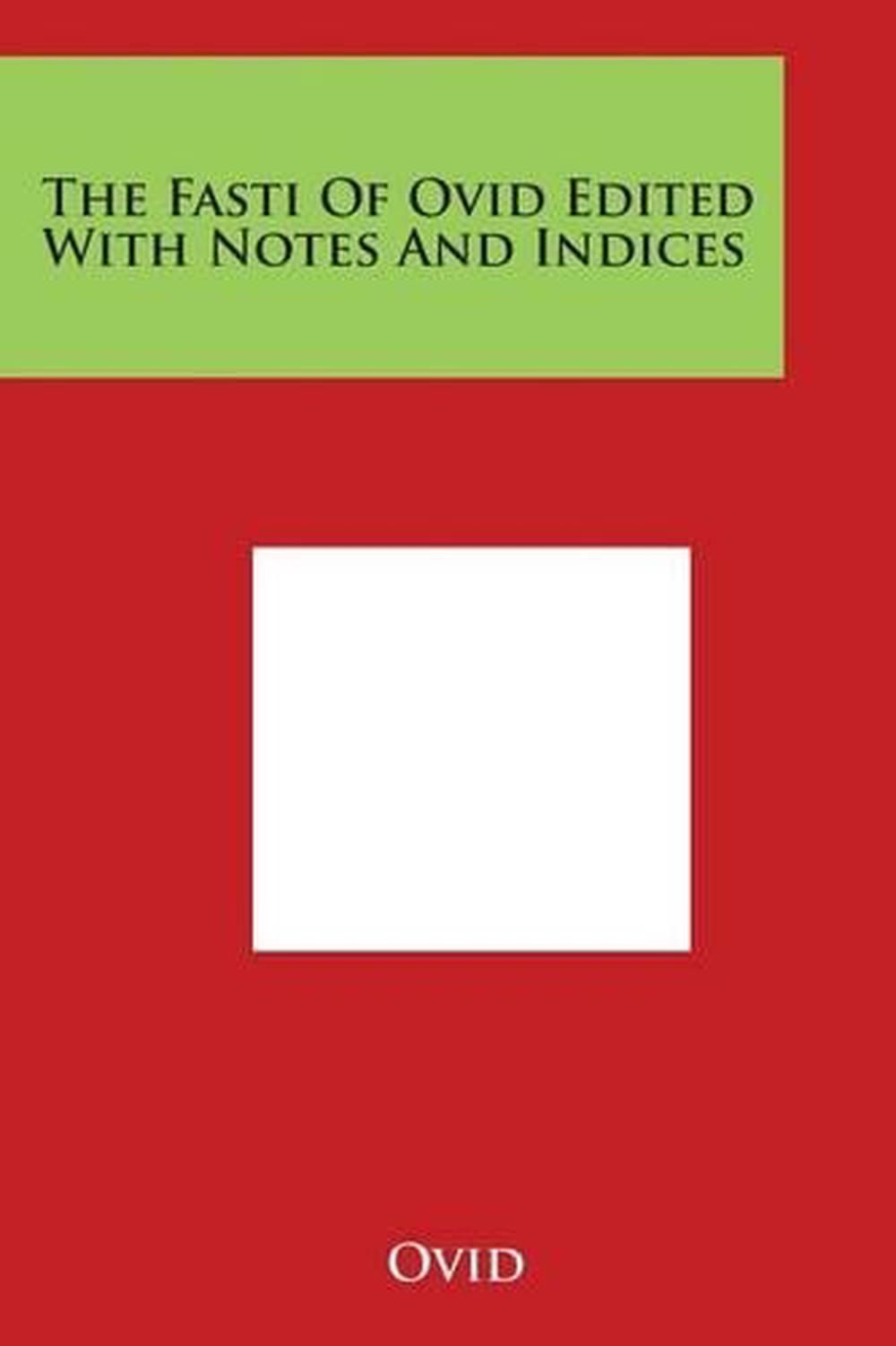
The result is a tapestry of times and seasons, myths and beliefs, ancient lore passed down from deep antiquity, or borrowed from foreign peoples. Woodard (London, 2000): “Ovid’s Fasti has as its background a calendar of the first six months of the Roman religious year, into which are woven episodes drawn from Roman historical tradition and Greek mythology, embroidered with astronomical observations and political sorties. This translator’s introduction concludes with a quotation from the introduction to the Penguin translation of the “Fasti” by A. Ovid never completed the work, and it is unclear whether he ever intended to write about the final six months of the year.

the year when Ovid was exiled to Tomis, but he continued to work on new drafts of it for the remainder of his life. The poem was originally published in 8 A.D. The poem contains much Roman mythological and religious lore which would otherwise have been lost. The books contain some brief astronomical details, but their principal sections discuss the religious festivals of the Romans, the rites which were involved in them, and their mythological explanations.
:max_bytes(150000):strip_icc()/temple-of-janus--autun--france--burgundy--978387060-5c64a8e446e0fb000184a516.jpg)

Endlessly playful, this is also a work of integrity and courage, and a superb climax to the life of one of Rome's greatest writers.The “Fasti” is a six-book Latin poem by Ovid concentrating on the Roman calendar or ‘Fasti’, and each of its separate books deals with the first six months of the year, January to June. It may also be read as a subtle but powerful political manifesto which derides Augustus' attempts to control his subjects by imposing his own mythology upon them: after celebrating the emperor as a Jupiter-on-earth, for example, Ovid deliberately juxtaposes a story showing the king of the gods as a savage rapist.

Both a calendar of daily rituals and a witty sequence of stories recounted in a variety of styles, it weaves together tales of gods and citizens together to explore Rome's history, religious beliefs and traditions. Written after he had been banished to the Black Sea city of Tomis by Emperor Augustus, the Fasti is Ovid's last major poetic work.


 0 kommentar(er)
0 kommentar(er)
